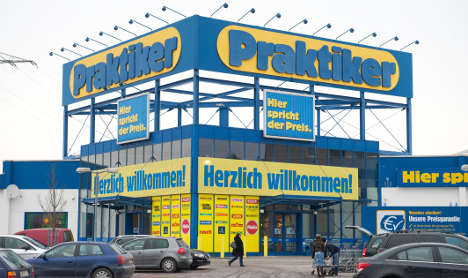The chain has more than 300 shops in Germany and nearly 130 in eight other countries, but the majority of the jobs are domestic.
Praktiker has been in the red for years, after a failed discount campaign plunged it into crisis. Last autumn, new chairman of the board Armin Burger set out a plan to secure its finances but the first quarter of this year resulted in more losses.
It is thought the entire DIY industry suffered from the long winter and the resulting late start to the spring season.
These considerations negated the efforts of the management, the board said in a statement. “This has pushed the company into a strained liquidity situation,” it said, adding that it was not possible to find dependable financing for a restructuring.
The Praktiker group also owns the far more profitable Max Bahr chain. Burger recently closed a number of Praktiker shops, closed down operations in a number of countries, and turned some Praktiker stores into Max Bahr shops. But this was not enough, and the money has now run out, the board told shareholders on Wednesday.
An application for insolvency will be submitted to the relevant authorities shortly, the board said. The Max Bahr shops will not be affected, and most of the Praktiker shops abroad will also continue to operate.
The Local/DPA/hc



 Please whitelist us to continue reading.
Please whitelist us to continue reading.
Member comments